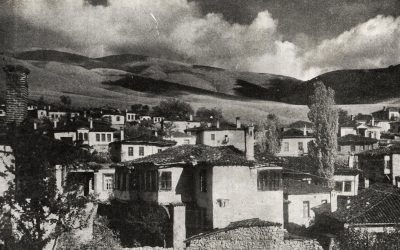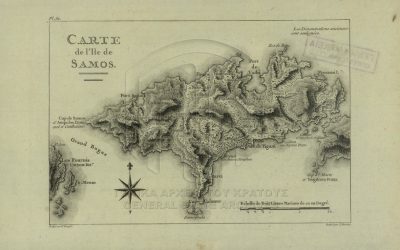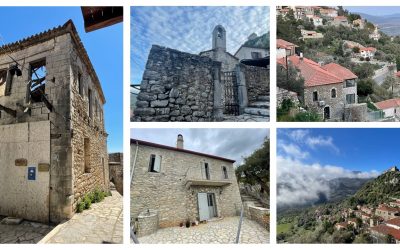World War II began in 1939 and ended in 1945, dividing the world into two opposing sides, the Allies and the Axis powers. It was a war with incalculable losses, perhaps the deadliest in modern history, and its outbreak was due to many complex factors. Those who fought in that war have now passed away, while the children of the war are already at an advanced age. Along with all those who pass away, the primary memory of the war is also lost. It is replaced by a secondary, indirect personal and collective memory, and in this article, there is an initial attempt to study that with an emphasis on the so-called Gen Z, the young people who were born from the late 1990s to the early 2000s. In the majority of cases, these young people have grandparents who lived through the war, mainly as children, and they were told their stories. So how do these stories survive in Gen Z? In other words, how does Gen Z “remember” World War II?
Greece at War
When Romania decided to allow Nazi Germany to control the oil-rich fields in the Ploiești region, Mussolini felt threatened by the power that Hitler would acquire. Consequently, he sent an ultimatum to Greece: free passage and control of strategic points, or war. Metaxas’s response marked Greece’s entry into the war on October 28, 1940. However, Greek forces managed to repel the Italian attack in the mountains of Pindus and even advance into southern Albania. Wanting to rectify his collaborator’s defeat, Hitler put forward Operation Marita. Metaxas tried to convince the Wehrmacht that the Greeks wanted to avoid the war and did not provoke the Italian invasion, but the German army, in coordination with the Bulgarian one, invaded western Macedonia on April 6, 1941. Within about two weeks, Ioannina had fallen, and on April 27, the Nazis were in Athens. Subsequently, a puppet government was appointed with Tsolakoglou as the prime minister (loyal to the Führer’s ideology), while the legitimate government went to Cairo. The country was then divided into three occupation zones: Bulgarian, German, and Italian.

Resistance and Reprisals in Greece
The phenomenon of Resistance emerged immediately when the occupation began. Small and large groups of people decided to confront the enemy and support their fellow citizens. Organizations such as EAM and ELAS, EDES, EKKA, Bouboulina, Odysseas Androutsos, Athanasios Diakos, and PEAAN are some of the Greek resistance organizations that were formed. They mainly operated in mountainous areas but tried to assist, especially in matters of sustenance, in the lowland regions and urban centers. Their actions naturally disturbed the occupiers, leading to the implementation of a ruthless tactic of assassination and terrorism, known as the policy of reprisals.
The German Reprisals, aimed not only at crushing the Resistance but also at breaking the morale of the Greek people, who were regarded with suspicion, were based on the logic that “terrorism must be paid with terrorism.” The Nazis had even established a ratio of how many Greeks should be executed for every death of a German soldier. The proportion was obviously disproportionate. As a result, among many other atrocities, thousands of executions of men and civilians took place, numerous village massacres, and barbaric slaughters, such as in Distomo and Kalavryta, occurred.

Gen Z “Remembers”
All of the above have left a mark on generations of Greeks, and many personal testimonies have been preserved thanks to their oral or written documentation. Oral history is a valuable method for historians to record events in their unaltered form with a more subjective perspective, that of the narrator. Oral history is also the source of those who, belonging to the so-called Gen Z generation, participated in our research and shared with us a history that had been told to them by their grandparents. Obviously, the memory of Gen Z from World War II is not primary but mediated. However, it is valuable not only because it represents the most “alive” aspect of history beyond historical texts but also because its presence, to the extent it exists, shapes perceptions.
We asked the participants in our research to share with us a story from the war exactly as they remember it from their grandparents and to freely express a thought or emotion that this “memory” generates in them. Let’s read them…
My great-grandfather, a Greek from Agioi Saranta, participated in the resistance against the Italians by engaging in sabotage. He was arrested three times and miraculously escaped execution on all three occasions. I don’t remember all the details, but I do recall that one of the times he was sentenced to execution, he was saved thanks to an Albanian who recognized his shoes because they had been made by the Albanian’s brother, who was a shoemaker. This story was told to me by my grandmother. ~ G.K.
My grandmother’s family, from a village in Laconia, was quite well-off and had a lot of money because they lent to their fellow villagers. Due to the inflation during the occupation, their financial wealth was depleted. I don’t remember any other details. ~ Z.K.
Outside my grandfather’s house in a village in Messinia, they found an injured Austrian soldier. My grandfather’s mother brought him inside and nursed him back to health. A few days later, in retaliation for an attack by the partisans, the Germans burned down the village. It is said that only my grandfather’s house was left untouched because they found the Austrian soldier there. However, the house was later looted by fellow villagers. ~ H.M.
My grandmother was in Patras when the city was bombed by the Italians. She told me that she was walking on the pedestrian street of Trion Navarxwn (Three Admirals) during the bombing. Patras was one of the first Greek cities to be bombed in this early period of the war. ~ M.R.
My grandfather was a member of the EAM (National Liberation Front) in the Achaea region, around Kalavryta. He participated in battles against the Germans in the villages of Zachlorou, Soudena, and Kerpini. However, I know more about his actions (outside Achaea) during the Greek Civil War period (1946-1949) that followed. The part of the Greek Civil War movement is what evokes stronger emotional feelings in me, as I feel that I have a “historical heritage” from my grandfather. ~ E.R.
My grandmother lived in a small village outside Kalavryta called Trechlos. I distinctly remember her telling me that they could hear the noise of military airplanes, which looked like birds in the sky, and they would run to hide on the hillside of the village, listening to the bombings nearby. Moreover, since my grandmother’s father was a doctor and had his clinic under their house, he had treated many injured soldiers and more, performing surgeries on them. Despite being very young, my grandmother assisted in the clinic. As a result, she had witnessed with her own eyes the incidents and the harsh conditions under which people received medical care, including amputations, and more. ~ M.I.R.
“The Italians didn’t harm us…” is the line that stuck with me from my grandmother. She had lost her father before the war, which made her a member of a single-parent family with five children. During a raid by Italian soldiers on their home in a mountainous village in Aitoloakarnania, despite their aggressive tone and my great-grandmother’s courage in confronting them verbally, the soldiers took nothing, didn’t harm them, and simply left, never bothering their house again. This particular story makes me think that in war, just like in life, there are no generalizations: even a soldier of a fascist regime can behave with some empathy when faced with a struggling family. ~ S.P.
An anecdote I heard in my younger years. It was when they went to hang my grandfather, who was then at a young age, if I recall correctly, for something he had done. The execution would have taken place, but they begged an officer, telling him that the child was the doctor’s, and an elderly gentleman (who had volunteered) would take his place because at that time my grandfather was just a child. So it happened, to spare the child, another person was sacrificed. This story evokes feelings of sadness and anger for the atrocities that occurred back then, not only for the ones we learned about but also for those we didn’t. ~ K.P.
My grandmother was born and raised in Skafidaki, a village in Argolis. She was about 10 years old when the occupation began in Greece. My grandmother, being a young child at the time, didn’t understand much. Not only because of her age but also because in the villages, hunger and hardships were not as severe as in the cities, as the people there cultivated their own crops. However, there were many cases where German and Italian conquerors confiscated the villagers’ crops, set fire to their fields, and killed the livestock of the farmers as reprisals. The violence of the German occupation in Greece is a dark chapter in history. I believe it’s our duty to prevent such events from happening again. The younger generation may not have experienced the famine, poverty, and fear, but memories manage to survive within us through testimonies. And in my opinion, that is very important. ~ H.K.
How much do we “remember”?
These stories come from those who participated in our research. However, it would be wrong to rely solely on them. Many were those who either did not care to participate or did not really remember any war stories. How much, then, does Gen Z “remember,” and what exactly does it remember? And what will the next generation remember? The above “memories,” beyond their value and the emotional charge they provoke, reveal that the “memory” of World War II and of its particular “nature” is fading away. Moreover, there were almost no references to the ideological dimension of that war. The younger generation, in general, seems not to know or even care about a historic event, the consequences of which are still visible today. Perhaps this forgetfulness is not unrelated to the rise of far-right political formations in Greece. Although the phenomenon of the appearance and strengthening of Golden Dawn in recent years puzzled many, ignorance about World War II and the “forgetting” of the horror and suffering it entailed might explain it. Especially among young people in 2015, the appeal of the party was at 11%. Even after the conviction of Golden Dawn as a criminal organization, right-wing tendencies were not extinguished, even in the last parliamentary elections. However, it would be wrong to consider this phenomenon purely Greek. A similar situation is presented in other European countries, where the horror of Nazism and the war no longer seem to exist in our collective consciousness. The only solution is to rely on whatever, even indirect, “memory” is preserved and on historical study, in order to preserve the achievements of freedom and democracy for which those who are no longer with us fought.
About the Author
Sofia Pitsineli studied history at the University of Athens, Greece, and works as a research assistant at Greek Ancestry.



